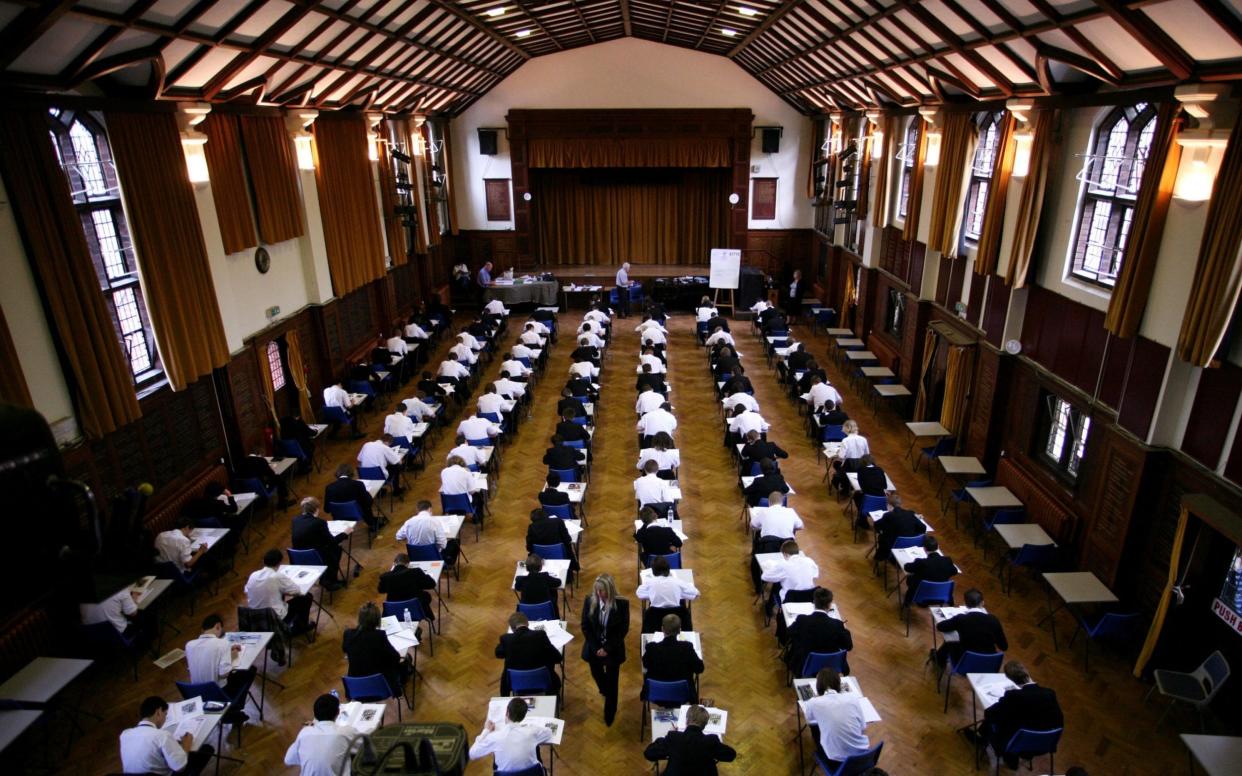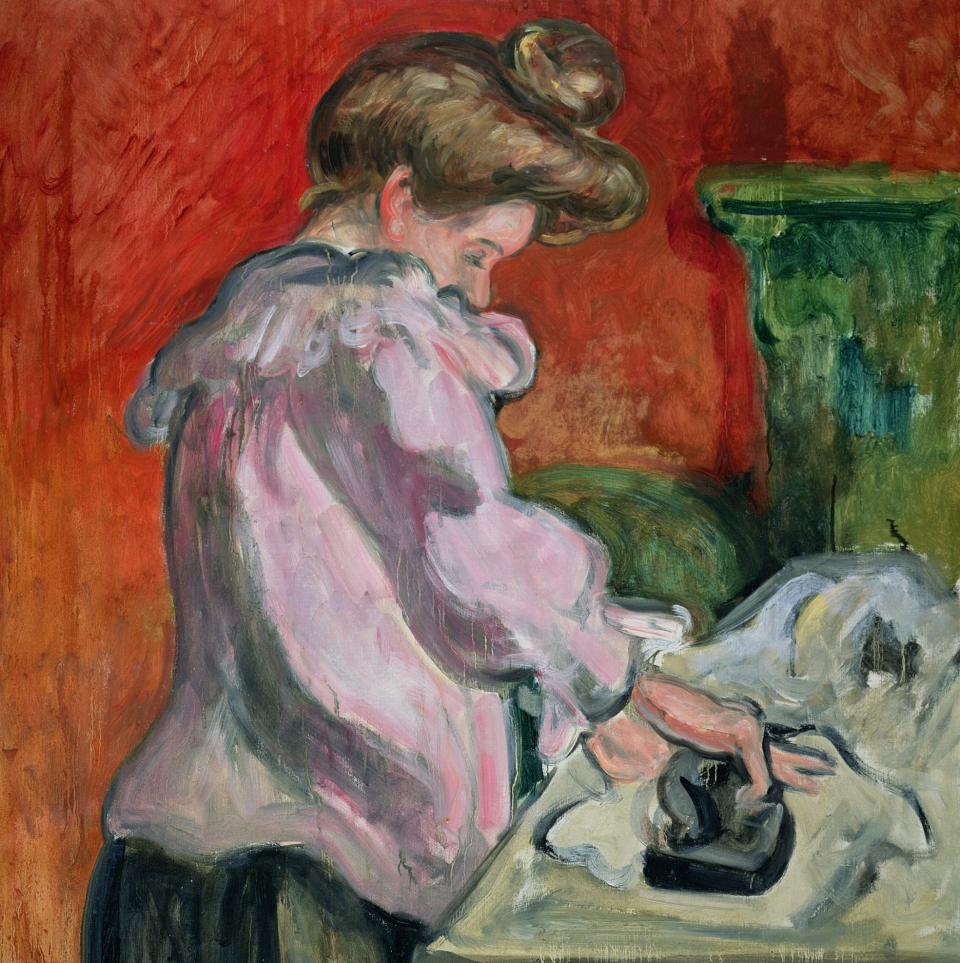Letters: How new grammar schools could avoid the unfairness of the past

SIR – Despite coming from a poor background, I made it to the local grammar school, which was in fact a “grammar and technical school” (“Pledge to drop grammar school ban could go on back burner until the next election”, report, October 6).
Here, along with the traditional grammar school subjects, boys were taught metalwork, woodwork and technical drawing up to O-level, and girls were taught shorthand, typing, sewing and cookery (it was the early 1960s). The technical skills I acquired led me to pursue a successful career as a chartered surveyor.
My younger brother later joined me from the local secondary modern, having passed the 13-plus, and half of our sixth form was made up of pupils transferring from other secondary schools after O-levels. The system was not as rigid as its detractors suggest.
If there is ever a new generation of grammar schools, this seems to me an ideal model.
R T Britnell
Canterbury, Kent
SIR – During my teacher training, I worked at a technical grammar school. My first job was at a secondary modern only four miles down the road but light-years away in terms of aspiration, expectations and opportunities.
Thank goodness for comprehensive schools.
Roger A Lounds
Christchurch, Dorset
SIR – I attended a secondary modern in the 1960s and gained seven O-levels. I am a retired orthopaedic radiographer, while a friend of mine used to head the health visiting team in North Warwickshire. We owe thanks to a dedicated headmistress (Miss D M Parncutt), who strove for nothing less than the best for her girls.
Daphne Ison
Bedworth, Warwickshire
SIR – In the 1970s I attended Lancaster University. I had left my secondary modern with four O-levels but took two more and two A-levels at Blackpool Tech while working part-time as a bingo caller. In an early example of widening participation, the Lancaster geography department gave me a chance.
I went on to teach for 40 years. My final job was as head of careers at Hills Road Sixth Form College in Cambridge – the highest achieving college in the country. Not bad for a secondary modern lad.
Paul Ingham
Bury St Edmunds, Suffolk
SIR – The way to equip young people with the skills this country needs is through apprenticeships. It doesn’t matter if they have been to a grammar school or a comprehensive.
Jack Marriott
Churt, Surrey
SIR – In the 1960s I was fortunate to attend an independent grammar school, with fees paid by the council.
I can assure you, I am the best truck driver it ever turned out.
Steve Cartridge
Bolton, Lancashire
Britain’s sepsis crisis
SIR – We read with dismay the story of Tina Hughes, who died at a West Midlands hospital last September after doctors failed to recognise sepsis and appeared to be hesitant to initiate care until they had decided upon an appropriate ward (report, October 5).
While we cannot be certain if earlier intervention would have saved her life, the 12-hour delay would certainly have diminished her chance of surviving.
As we emerge from the worst of the Covid-19 pandemic, the crisis affecting the NHS is hitting patients and their quality of care. A recent survey of European doctors by Ipsos Mori found a striking anomaly among those from Britain: they acknowledged that cases of sepsis were being missed in their hospitals and cited understaffing as the most frequent cause.
With 48,000 people a year dying from sepsis in Britain, its recognition and immediate management must again become a priority. We call for renewed education for all health professionals, for integrated care systems to commission for better sepsis care and infection management, and for the Department of Health and Social Care to develop a patient-level registry linking multiple data sets to allow health professionals and academics to better understand this deadly condition.
Dr Ron Daniels
Founder and joint CEO, UK Sepsis Trust
Lord Grade of Yarmouth
Patron and Chair of Advisory Board, UK Sepsis Trust
SIR – I am 80 years old and have a few medical problems. I phoned our GP surgery on Wednesday, hoping to book an appointment (phone or face to face). I received a recorded message saying: “We can only deal with emergencies today.”
Thomas Gibson
Hazel Grove, Cheshire
Premium Bond puzzle
SIR – I received thrilling news from National Savings & Investments that I’d won a Premium Bond prize. The bad news is that it has changed how you find out more by introducing two-factor identification, which requires a mobile phone.
I have a landline with a call-blocker. The patient man at NS&I said that the highly paid consultants who set up the new system hadn’t considered such a possibility. The number you have to try to get your landline provider and handset to recognise is French. Clearly I’m not the only person to have such problems as the NS&I help centre’s waiting time was 30 minutes.
I will take a headache pill before I contact my landline provider to see if it can do the unblocking at its end.
Anne Jappie
Cheltenham, Gloucestershire
Tea stain solution
SIR – Paul Rutherford (Letters, October 4) need struggle no longer when cleaning his tea mugs.
I also like strong tea but find it stains both my mugs and the teapot. A good squirt or two of Milton Sterilising Fluid, topped up with cold water, will restore mugs and teapots to their pristine state in a very short time.
Patricia Jagger
Bedford
SIR – My late uncle might hold the record for the most mugs of tea from a single tea bag. While in captivity during the Second World War, he was in charge of provisions and would reuse tea bags until there was virtually no change in the colour of the water, then dry them and sell them. They were popular.
David Rumsey
Pinner, Middlesex
The Tory choice
SIR – I have voted Conservative all my life, except in the 1997 election, when Tony Blair beat John Major.
At that time, the Tories were a rabble arguing among themselves. Today the situation is the same. Much as I hate to say this, Labour is doing a better job of appealing to the electorate.
If the Tories want to be voted out at the next election, they should carry on as they are. Alternatively, they could follow their leader, give her the time and respect she deserves, argue in private and start communicating to the voters with one voice.
Sadly, however, I don’t see much chance of that happening.
David Smith
Ilkeston, Derbyshire
SIR – What Liz Truss is setting out to achieve is exactly what this country needs to get itself out of the doldrums.
The problem is the “the problem is” culture that she has inherited.
John May
Arkesden, Essex
SIR – I have never understood the argument that, in order to incentivise the wealthy, tax reductions are necessary, but to have the same effect on the poor, benefits have to be cut.
John Catchpole
Beverley, East Yorkshire
Rescued marbles
SIR – Regarding the letters (October 5) on the Elgin Marbles, it seems to have been forgotten that when Lord Elgin went to Athens in the early 19th century he discovered workmen grinding down the marbles to make cement.
Instead of excoriating him, we should be thankful that he saved the marbles for all of us.
Viscount Bangor
London SW6
Walnut wisdom
SIR – David Brown (Letters, October 6) has an abundance of walnuts, but I think he will find it is too late to pickle them. This should be done in July, when the insides are still soft.
Judith Thompson
Wilby, Northamptonshire
SIR – Any child looking for conkers will find carpets of them along Wimbledon Common’s Parkside.
The more that are removed the better – cycling along there is hazardous. But watch out for cars.
Tony Parrack
London SW20
What the makers of ironing boards get wrong

SIR – I agree with Jane Shilling (Comment, October 3) that ironing has a meditative quality.
Ironing board manufacturers clearly don’t get this, relentlessly offering jaunty patterns of hearts, polka dots, spriggy plants and so forth, presumably in a desperate attempt to lift the mood. Evidently they don’t do much ironing.
To iron a checked shirt without getting cross-eyed, the prerequisite is to have a plain cloth board, keep calm and carry on.
John Jones
London SW19
Hands-off policing doesn’t win public confidence
SIR – I can tell Roy Ramm (Letters, October 6) why chief police officers don’t already know that visiting crime scenes helps to solve cases, reassure victims and prevent further crimes: the majority of them never did any policing at the sharp end.
They were mollycoddled products of the graduate entry scheme, with degrees in sociology, politics or music. Their accelerated rise in rank did not include any time spent feeling the collars of criminals, giving directions to the public or reassuring crime victims over a nice cup of tea.
It was those responsible for implementing such a hare-brained scheme who were in the vanguard of destroying the public’s confidence in a force that was once the envy of the world.
Alan G Barstow
Onslunda, Skåne, Sweden
SIR – It’s really only necessary for a policeman to attend a burglary if it is still happening.
If it’s later, why can’t a trained administrator be used to collect all the evidence? This would free up the limited police resource for other urgent activities.
Ken Turrell
Norwich
Letters to the Editor
We accept letters by post, fax and email only. Please include name, address, work and home telephone numbers.
ADDRESS: 111 Buckingham Palace Road, London, SW1W 0DT
FAX: 020 7931 2878
EMAIL: dtletters@telegraph.co.uk
FOLLOW: Telegraph Letters on Twitter @LettersDesk

 Yahoo Movies
Yahoo Movies 
